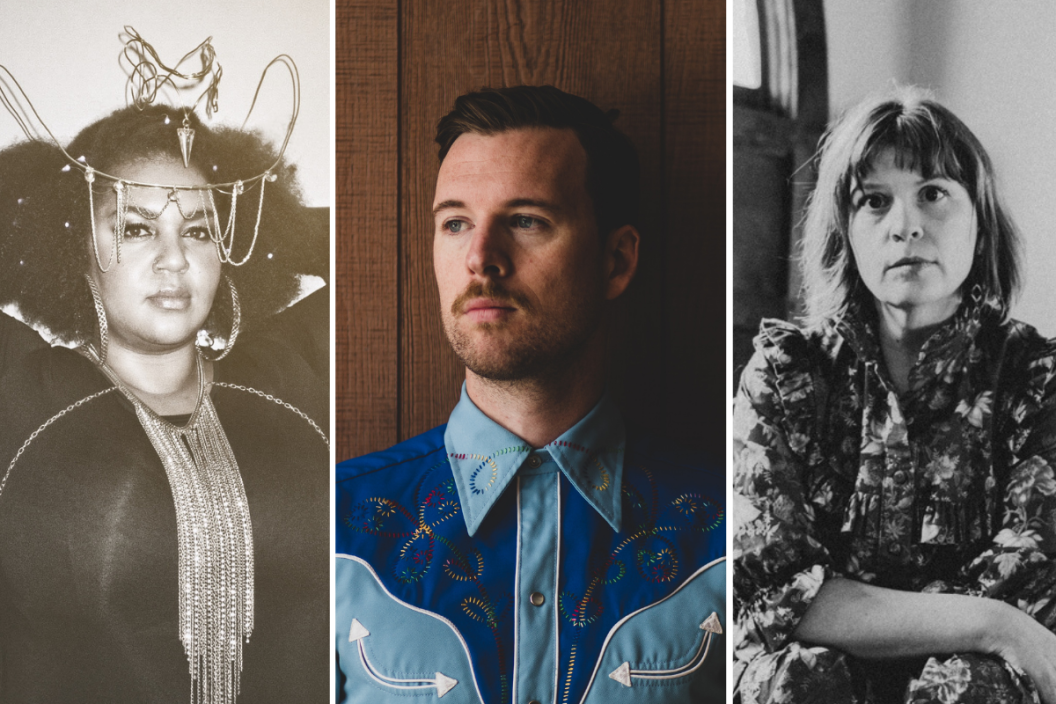Every month, Wide Open Country will spotlight three country or roots music acts with upside that's yet to equal commercial airplay or inclusion on taste-making playlists.
Videos by Wide Open Country
In most cases, Acts to Watch isn't code for new. Most appeared on our radar after years of paying dues on stage and in the studio.
Read on to meet March 2021's three Acts to Watch.
D'orjay The Singing Shaman
D'orjay The Singing Shaman, a Black, queer, Canadian woman, further decimates the ahistorical notion that country music's always been by and for white Southerners with Nov. 2020 release A New Kind of Outlaw.
The title track challenges music business status quos, while other selections offer fresher perspectives on such country music tropes as family ("Grandma Luvy's House") and living life to its fullest ("Whodatman").
Throughout these and other songs, D'orjay's mighty voice accompanies traditional country instrumentation: fiddle, pedal steel and an instrument brought to the States by slaves, the banjo.
"A small amount of research will show you that country music originated from Black people of the South who were brought over from Africa as slaves, and the genre is indebted to the ongoing contributions of Black people," D'orjay points out in her artist bio. "These things should not be shied away from anymore. We are at a point in our collective timeline where we have the opportunity to acknowledge so many long-running generational wounds. Until we can talk about them openly and acknowledge the harm caused, we cannot change and move forward."
Country Queer, a must-follow resource for up-and-coming artists, explains that D'orjay's billed as The Singing Shaman because "she practices Pranic Healing, offering a platter of otherworldly services ranging from full-moon meditations and tarot, to divination."
In a follow-up interview with Country Queer contributor and fellow musician-to-watch Adeem the Artist, D'orjay revealed that her approach to songwriting and performing's completely intertwined with her identity as a shaman.
"It's important to be 'D'orjay The Singing Shaman' because music is a big part of my medicine now," she said. "I will always resonate with the role of healer. At my shows, I say, 'One of the things we do as shamans is create sacred space' and then I have a sacred prayer that I sing. Then I say, 'The other thing we shamans do is bring light into the darkness' and my hair lights up.
"We often do mantras together as well," she continued. "That's always a part of the show. I try to make it as interactive as possible for people to get an experience with a shaman but in a way that I think is more universal and easier to digest and doing that with the vehicle of music."
Scott MacKay
If country music inspired by the great honky honk and rockabilly band leaders of the '50s and '60s is more your speed, check out Scott MacKay's new album Stupid Cupid.
The 10-song collection should please even the pickiest fans of throwback sounds, in part because of modern pedal steel master Burke Carroll's contributions.
Beyond helming a hot band, MacKay grasps both the heartache and humor that permeate some of the greatest country songs of yesteryear.
"I really became smitten with songwriters such as Shel Silverstein, Hank Williams, Bobby Bare, Roger Miller and others," he says in his artist bio. "It made me focus my attention on improving my songwriting, and I tried to learn as much about it as I could. I took a lyric writing class, a storytelling class and a creative writing class. I even took part in a songwriting workshop in Nashville where I got to meet and learn from some of the greatest songwriters in the world."
Stellar examples of MacKay's way with words and his supporting cast's mastery of honky tonk time travel include quirky tearjerker "When She's Sleepin' She's Cheatin'," breakup song "Half of Everything" and the serene "Romance Novel."
Like most acts on similar lists, MacKay's far from new at his craft. The Charlottetown, Prince Edward Island native's been one of the best old souls going since at least the 2015 release of his folk-influenced album Twin.
Read More: Waylon Jennings Covered Fleetwood Mac's Enchanting Classic 'Rhiannon'
Janet Simpson
A well-traveled veteran of the Atlanta and Birmingham music scenes' experience pairs well with her knack for razor-sharp songwriting on Janet Simpson's first solo album since 1997, Safe Distance (out March 19 via Cornelius Chapel Records).
The two genre-defiant songs from the album currently on Spotify, "Nashville Girls" and "I'm Wrong," owe more to rock's great Rickenbacker slingers (think Tom Petty and The Bangles' Susanna Hoffs) than country and folk greats (though Simpson surely digs a third Rickenbacker loyalist, Mary Chapin Carpenter).
Still, there's a storytelling depth in Simpson's work that should appeal to country music fans. For instance, "Nashville Girls" deals with an uncomfortable reality for many creative types.
"I think most people probably know the feeling of being in a crowd and feeling like the oddball, or feeling invisible," Simpson told American Songwriter for its premiere of the song's video. "I've certainly always felt this way... but you get to a point where maybe you can just own it instead of wishing you could be more like those girls who seem to work so hard to catch everyone's attention."
Now Watch: Dolly Parton's Siblings: Then and Now
https://rumble.com/embed/u7gve.va8j47/




